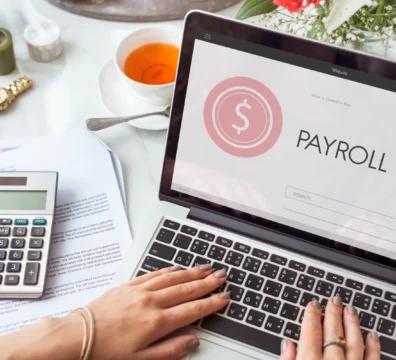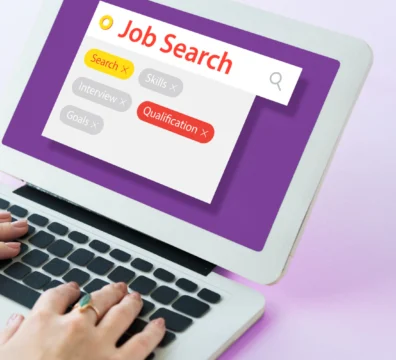Not just in the Middle East, but the global job market has changed dramatically. The demand for qualified candidates is high, while the supply is often low, making employee retention challenging. After all, a company’s success rests in the hands of its workforce. This makes the market more candidate-centric, which urges companies to find ways to attract and retain top talents.
According to research, small business owners believe nearly 22% of their employees are quitting mainly because of better advancement opportunities. Are you facing similar issues of retaining talents? One solution to it is establishing a good promotion policy in HRM (human resource management), offering better career paths and improved compensation packages.
Now, the question is, what is promotion in HRM? Is it important in all-size organisations? How can you establish a promotion policy in business? We will answer your questions in this guide and help you understand the promotion policy meaning in HRM.
What is the Promotion Policy in HRM?
Everyone loves appreciation for their hard work, motivating them to keep improving. One such way of employee recognition is by offering them timely promotions. You can offer a salary raise, transfer to a senior post, give higher responsibilities, provide decision-making power, etc. However, you must have a formalised set of standards for such employee opportunities that we call a promotion policy in HRM.
In short, an employee promotion policy and procedure in HRM outlines the purpose of your policy, who it benefits, what requirements must be fulfilled, etc. However, not all employees will get promoted during the yearly appraisal, as it is the highest form of appreciation. Thus, a proper policy must be established to decide who gets promoted and who gets a raise.
Only the most eligible employee who can efficiently manage their new roles and responsibilities can be promoted. Most promotions come with leadership opportunities. So, choose judiciously!
Why is Promotion Policy in HRM Important?
The promotion process in HRM is mainly designed to promote your employees’ career growth by offering them the best opportunities and adequate resources. It has a direct impact on the company’s future as well.
Since promotions are recommended by reporting managers, personal biases may affect the advancement of a particular employee. It is important to have a well-etched-out promotion policy stipulating the various criteria that an employee must meet to get promoted.
We have listed some common company goals for establishing promotion policy and procedure in HRM.
Career Growth Plan
Most employees today prefer working in a company that values career growth. Therefore, your promotion policies must include a good career growth plan map for every position in the company so employees understand what they can expect from you.
Eliminate Discrimination
When there are strict guidelines, chances of leaving room for workplace discrimination are reduced. It ensures you eradicate emotional biases and favouritism or harmful workplace practices like religious and gender discrimination in your organisation. A promotion policy maintains transparency throughout the process, ensuring your employees get a promotion based on merit and work ethic.
Improved Recruitment Process
Recruitment is difficult, especially when a talented employee leaves due to better opportunities. However, with a good promotion policy in HRM, you can retain them. Additionally, most companies post a job internally first, then to other portals. If you have a good promotion strategy, these employees with the required skills can apply for the post. Therefore, it reduces the requirements for hiring external candidates and saves time and resources.
Steps to Establish a Process of Promotion in HRM
You must follow certain guidelines and procedures before establishing employment promotion policies in your organisation. This ensures you don’t entertain biases in your company and promote DEI (diversity, equity, and inclusion) initiatives.
Now, let us understand a few key elements of a promotion policy in HRM.
Determine the Employee Criteria for Promotion in HRM
The first part of your promotion policy must include the eligibility criteria for an employee to win a promotion. These criteria include
- Work performance
- Seniority
- Potential abilities in leadership position
- Merit and ability
- Interval between promotions
By assessing these factors, you can fairly decide whether to promote or not to promote an employee.
Identify Who is Responsible for Giving Promotions
You must clearly define the rules and duties of the supervisors responsible for giving promotions in the policy. Typically, these roles are played by managers, HR managers and those with leadership powers. They assess your employees thoroughly to identify their efforts for your company and if they have the potential for a promotion.
Understand When to Promote an Employee
While you have set the criteria for employees to get a promotion, it’s time to outline when to promote them to a new position or give a raise. Some common circumstances where you can offer a promotion are when an employee wants to quit for better opportunities elsewhere, or when the hiring manager advertises a new job opening internally.
Apart from this, other instances where employees are offered promotions are:
- When someone excels beyond the expectations
- When someone has mastered their current job function
- If a person has been showing leadership qualities and contributing to a team’s growth
Determine the Type of Promotion to Offer
Now that you know whom to promote and when, you must focus on what type of promotion to offer your employees. These can be vertical, horizontal, or dry promotions.
Vertical promotions are offered to employees who demonstrate their excellence in their current job role and can take on higher responsibilities. In contrast, horizontal promotions are offered to employees who demonstrate a trend towards mastering their current role or have achieved significant results. Dry promotions are rarely offered as they demand more from the employee without a pay raise or new title allotment.
Announcing the Promotion
Once you have decided to promote an employee, the final step is announcing it throughout the organisation. However, before announcing the promotion, you can arrange a meeting with the team members and talk to the people most affected by the change. Ensure you ask for their feedback and reactions to your decision before making it public in the company.
How 6 Pence Help with the HRM Policies of an Organisation?
Promotion policy in HRM is a must for all organisations to attract and retain top talents. It engages your employees for a long time, saving you from the hassle of finding new people and training them for the roles.
You can reach out to us at 6 Pence if you are struggling to find top talents for your business. As among the leading staff outsourcing agencies in the GCC, we help with end-to-end, customised staffing and recruitment solutions.
Our expert team can also assist with payroll processing and other HR-related work. This helps you streamline your promotion policies and further improve employee retention. For further information, connect with us today!
Also Read: Step-by-step Guide to Successful Employee Exit Management
Frequently Asked Questions
1. What is a good promotion policy?
A good promotion policy clearly defines the criteria for awarding employees a promotion. Other characteristics of a good promotion policy include performance assessment, promotion routes, maintaining service records, employee training and communication.
2. What are the methods of promotion in HRM?
The common method of promotion in HRM includes salary raises, increasing seniority level, offering more responsibilities, etc.
3. What are the four basic types of promotion?
The four basic types of promotion are horizontal, vertical, dry, and open or closed promotion. Most companies use vertical and horizontal promotions for their employees, whereas dry promotion is rare.




































































































